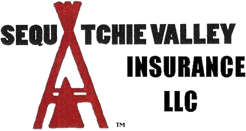- Insurance Services
- Auto, Home & Personal Insurance
- Business Insurance
- Business Interruption Insurance
- Business Owners Package Insurance
- Commercial Auto Insurance
- Commercial Property Insurance
- Commercial Umbrella Insurance
- General Liability Insurance
- Hotel & Motel Hospitality Insurance
- Professional Liability (E&O) Insurance
- Surety Bonds
- Workers' Compensation Insurance
- - View All Business
- Life Insurance
- Group Benefits
- About
- Policy Service
- Contact
Article originally posted on www.insuranceneighbor.com(opens in new tab)

The money accrued in your 401(k) is tied to your employer. The contributions come directly out of your paycheck, and your employer may match funds up to a specific limit. When you leave that job, you can no longer contribute to the 401(k), but the money you contributed still belongs to you. Your former employer might ask you to move your money if you contributed less than $5,000 during the term of your employment. The amount your employer contributed may or may not belong to you, based on the terms of your employment agreement.
Is Your 401(k) Vested?
“Vesting” is the legal term that means to earn the right to earn an asset or benefit. Your employer contributions will need to be fully vested for the funds to be yours, which typically requires three to five years. When you quit a job, you could lose some of the 401(k) funds contributed by your former employer, but your contributions continue to belong to you, even when leaving a job.
What Happens to a Neglected or Abandoned 401(k)?
A 401(k) plan could be neglected or abandoned by a sponsoring employee or a former employee. An employer may abandon a pension plan due to bankruptcy if the owner left the country or is incarcerated. In these cases, the financial institution will attempt to contact you at your last known address to inform you that the 401(k) was terminated. Once they reach you, they will send you a check for the money you contributed to the plan. If you believe a 401(k) you contributed to is abandoned, you can search for your plan through a site managed by the U.S. Department of Labor.
What to do with Your 401(k) Money When You Change Jobs?
If you are changing jobs, you may want to consider moving your 401(k) funds to a new retirement plan, either private or offered by your new employer. Another option is to withdraw the funds. If you choose that option, you should be aware you will incur tax consequences. The IRS will penalize you for early withdrawal of the funds, and you could lose a large portion of your investment. It could be wiser to move the funds to another retirement plan, whether offered by a new employer or a private plan.
Where Can You Move Your 401(k) Funds Without Incurring a Penalty?
Legally, your 401(k) funds can be withdrawn without a penalty once you reach age 59 ½ or if you are disabled and are unable to work. You will pay taxes on these payments, as they were tax-deferred when you saved. You can rollover the funds into an IRA (Individual Retirement Account) or another 401(k) offered by your new employer. You need to be aware of the various consequences of a rollover with certain accounts:
- If you rollover your funds to a Roth IRA, you will be taxed for the amount you moved to the new account.
- If you rollover the funds to a traditional IRA, you maintain the tax-deferred status.
To roll over your retirement savings in a 401(k), you will need to fill out some forms to request the transfer from one retirement account to another, whether a different 401(k) or an IRA. Ensure you do this step correctly because if you ask the financial institution to cut the check to you individually, they will withhold a percentage of the funds. You may be able to recover that loss, but it will add complexity to the process.
When You Need Help, Contact a Professional.
It is advised you get help with the process of moving money in a 401(k) or finding the funds you invested in an abandoned or neglected 401(k). Talk to one of our knowledgeable agents to help you navigate the process and ensure you protect your retirement funds.
Filed Under: Group Benefits | Tagged With: 401(k), Roth 401(k)